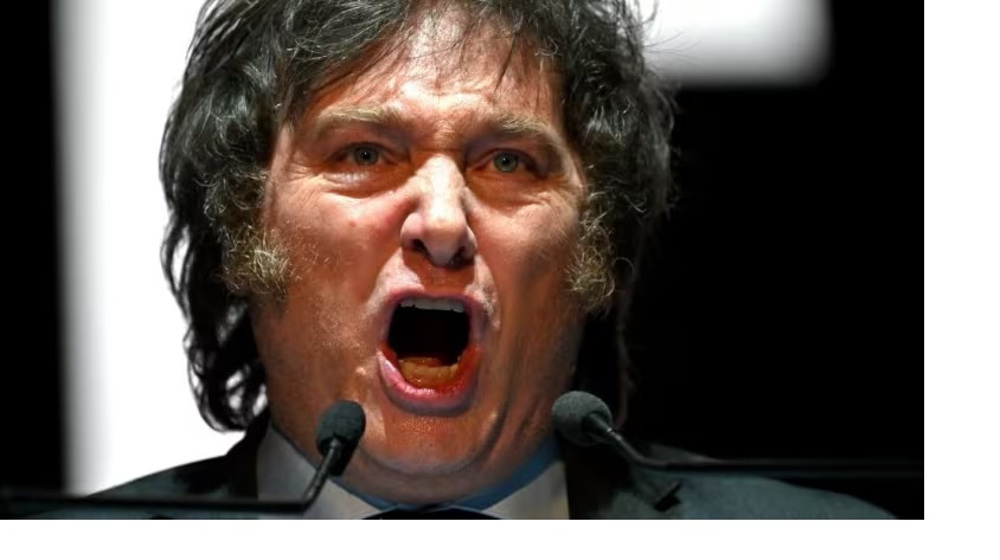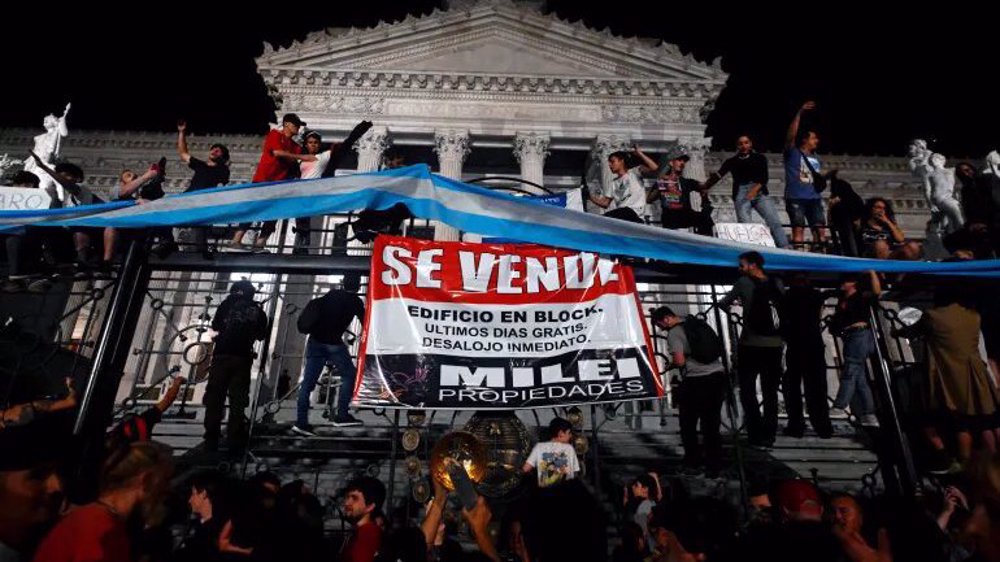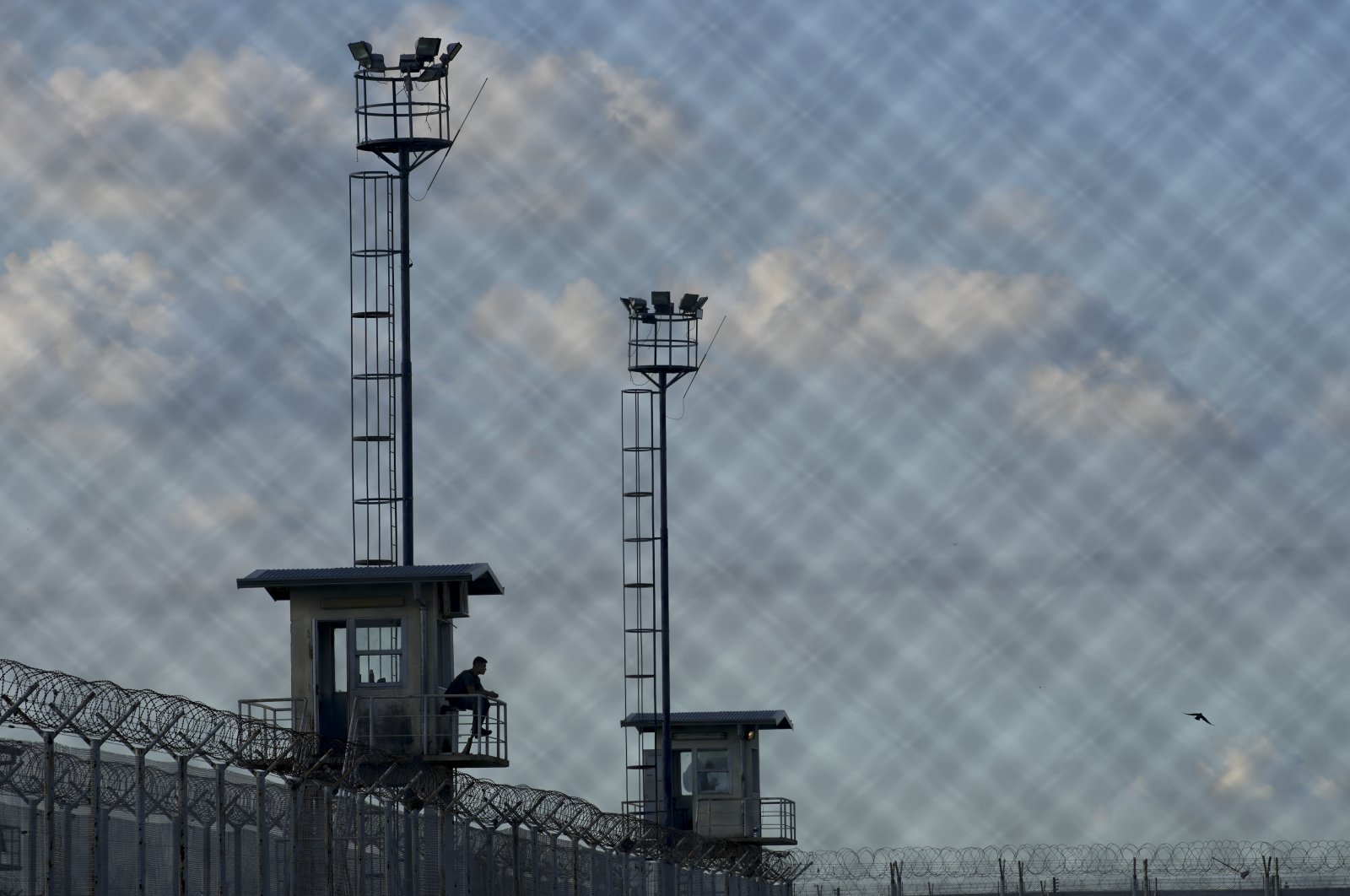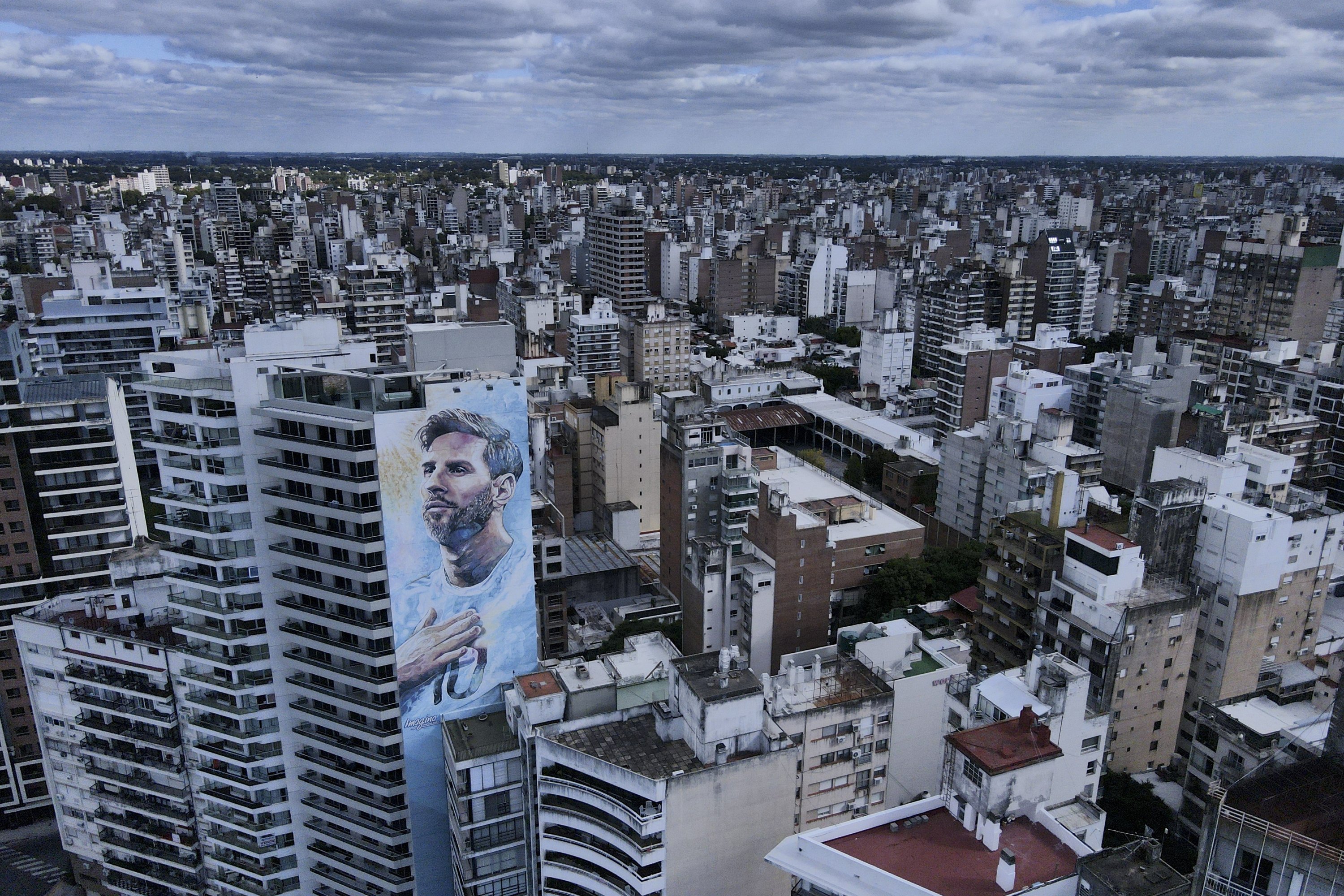Saturday, 30 December 2023 10:05 AM [ Last Update: Saturday, 30 December 2023 10:05 AM ]

Javier Milei, Argentina’s new right-wing, pro-Israel president
Argentina’s new far-right populist president Javier Milei has rejected an invitation from the BRICS group of developing economies to join the bloc in a dramatic shift in the country’s foreign and economic policies.
He announced the decision in letters to the BRICS leaders on Friday.
The bloc, which is made up of Brazil, Russia, India, China and South Africa, in August announced it was admitting six new members in a bid to counter the Western-led global order.
The membership of Argentina, Ethiopia, Iran, Saudi Arabia, Egypt and the United Arab Emirates was due to take effect from January 1, 2024.
The letters signed by Milei and published by several media houses said Argentina’s membership was “not considered appropriate at this time.”
The libertarian outsider Milei took office this month after his resounding defeat of Argentina’s traditional political parties, and he had vowed on the campaign trail not to join BRICS.
Melei, a self-proclaimed “liberal libertarian,” was elected the president of Argentina after defeating his opponent Sergio Massa, the country’s former economy minister.
During his campaign speeches, Milei announced not only radical changes in domestic politics and economy but also in the Latin American country’s international relations.
Milei also announced the termination of relations with Brazil and China, the current two largest trading partners of Buenos Aires, who account for 25 percent of Argentina’s exports and 40 percent of imports.

New Argentine president’s first economic shake-up plan sparks protests
He has also criticized Moscow, promising to suppress bilateral relations with Russia and continue to support Ukraine in the protracted war between the two countries.
Instead of Argentina’s previous political and economic allies, Milei favors ties with the United States and Israel, which was evident after he announced his first official trips to these two places.
Milei has also backed the Israeli regime’s ongoing aggression against Gaza, unlike most other Latin American leaders who have either severed ties with the regime or recalled envoys from Tel Aviv.
The new Argentinean president has also promised to blacklist the Palestinian Hamas resistance group.
Press TV’s website can also be accessed at the following alternate addresses:
————————–
🔴 BREAKING POINT: The CRISIS in Middle East will Crash Global Crude Oil Market in Strait of Hormuz
————————–
Gang violence rocks Argentina’s Rosario, prompting govt crackdown
BY ASSOCIATED PRESS
ROSARIO, ARGENTINA APR 21, 2024 – 12:34 PM GMT+3

A prison guard sits in a watchtower at the Pinero jail, Pinero, Argentina, April 9, 2024. (AP Photo)
The directive for the killing originated from within a federal prison near Argentina’s capital, where authorities inadvertently intercepted a call from drug traffickers associated with one of the nation’s most infamous gangs to accomplices on the outside.
Employing a 15-year-old hitman, they sealed the fate of a young father they had no personal knowledge of.
On March 9, at a service station in Rosario, the scenic hometown of football icon Lionel Messi, 25-year-old employee Bruno Bussanich was innocently whistling to himself and counting the day’s earnings just moments before he was mercilessly shot three times from a distance of less than a foot, as revealed by surveillance footage.

The assailant fled the scene without taking a single peso.
This incident marked the fourth gang-related fatal shooting in Rosario in almost as many days. Authorities described it as an unprecedented spree of violence in Argentina, a country that had hitherto been spared the worst of the drug cartel violence plaguing some other Latin American nations.
A handwritten letter was found near Bussanich’s body, addressed to officials who want to curb the power drug kingpins wield from behind bars. “We don’t want to negotiate anything. We want our rights,” it says. “We will kill more innocent people.”
Shaken residents interviewed by The Associated Press (AP) across Rosario described a sense of dread taking hold.
“Every time I go to work, I say goodbye to my father as if it were the last time,” said 21-year-old Celeste Nunez, who also works at a gas station.
The string of killings offers an early test to the security agenda of populist President Javier Milei, who has tethered his political success to saving Argentina’s tanking economy and eradicating narco-trafficking violence.
Since taking office on Dec. 10, the right-wing leader has promised to prosecute gang members as terrorists and change the law to allow the army into crime-ridden streets for the first time since Argentina’s brutal military dictatorship ended in 1983.
His law-and-order message has empowered the hardline governor of Santa Fe province, which includes Rosario, to clamp down on incarcerated criminal gangs that authorities say orchestrated 80% of shootings last year. Under the orders of Governor Maximiliano Pullaro, police have ramped up prison raids, seized thousands of smuggled cellphones and restricted visits.
“We are facing a group of narco-terrorists desperate to maintain power and impunity,” Milei said after Bussanich was killed, announcing the deployment of federal forces in Rosario. “We will lock them up, isolate them, take back the streets.”
Milei won 56% of the vote in Rosario, where residents praise his focus on a problem largely neglected by his predecessors. But some worry the government’s combative approach traps them in the line of fire.
Gangs started their deadly retaliations just hours after Pullaro’s security minister shared photos showing Argentine prisoners crammed together on the floor, heads pressed against each other’s bare backs – a scene reminiscent of El Salvador President Nayib Bukele’s harsh anti-gang crackdown.
“It’s a war between the state and the drug traffickers,” said Ezequiel, a 30-year-old employee at the gas station where Bussanich was killed. Ezequiel, who gave only his first name for fear of reprisals, said his mother has since begged him to quit. “We’re the ones paying the price.”

Even Milei’s supporters have mixed feelings about the crackdown, including German Bussanich, the father of the slain gas station worker.
“They’re putting on a show, and we’re facing the consequences,” Bussanich told reporters.
Rosario, a leafy city 300 kilometers (180 miles) northwest of Buenos Aires, is where revolutionary Ernesto “Che” Guevara was born. Messi first kicked a football ball, and the Argentine flag was raised in 1812. But it most recently gained notoriety because its homicide rates are five times the national average.
Tucked into a bend in the Parana River, Rosario’s port morphed into Argentina’s drug trafficking hub as regional crackdowns pushed the narcotics trade south and criminals started squirreling away cocaine in shipping containers spirited down the river to markets abroad. Although Rosario never suffered the car bombs and police assassinations gripping Mexico, Colombia and most recently Ecuador, the splintering of street gangs has fueled bloodshed.
“It’s not close to the violence in Mexico because we still have the deterrence capacity of the government in Argentina,” said Marcelo Bergman, a social scientist at the National University of Tres de Febrero in Argentina. “But we need to keep an eye on Rosario because the major threats come not so much from big cartels but when these groups proliferate and diversify.”
Drug traffickers keep a tight grip over Rosario’s poor neighborhoods, which are full of young men vulnerable to recruitment. One of them was Victor Emanuel, a 17-year-old killed two years ago by rival gangsters in an area where street murals pay tribute to slain criminal leaders. No one was arrested.
“My neighbors know who’s responsible,” his mother, Geronima Benitez, told the AP, her eyes shiny with tears. “I looked for help everywhere. I knocked on the doors of the judiciary and the government. No one answered.”

A fearful existence is all Benitez has ever known. But now, for the first time in Argentina, warring drug traffickers are banding together and terrorizing parts of the city previously considered safe.
Imprisoned gang leaders in Latin America have long run criminal enterprises remotely with the help of corrupt guards. But according to an indictment unveiled last week, incarcerated gang bosses in Argentina have been passing instructions on how to kill random civilians via family visits and video calls.
Court documents say the bosses paid underage hit men up to $450 to target four of the recent victims in Argentina’s third-largest city. The killing of Bussanich, two taxi drivers and a bus driver in less than a week in March, federal prosecutors say, “shattered the peace of an entire society.”
Street emptied. Schools closed. Bus drivers picketed. People were too terrified to leave their homes.
“This violence is on another level,” 20-year-old Rodrigo Dominguez said from an intersection where a dangling banner demanded justice for another bus driver slain there weeks earlier. “You can’t go outside.”
Panic was still palpable in Rosario last week, as police swarmed the streets and normally bustling bars closed early for lack of customers.
A diner managed by Messi’s family, a draw for fans, reported quiet nights and less profit.
Women in one neighborhood said they carry 22-caliber pistols. Analia Manso, 37, said she was too scared to send her children to school.
Last month, Pope Francis said he was praying for his countrymen in Rosario.
Assaults and public threats continue. This month, a sign appeared on a highway overpass warning Argentine Security Minister Patricia Bullrich that gangs would extend their offensive to Buenos Aires if the government doesn’t back down.
Authorities have sought to reassure the public by sending hundreds of federal agents into Rosario. The AP spent a night with police last week as officers patrolled neighborhoods, logging suspicious activity and setting up checkpoints.
Georgina Wilke, a 45-year-old Rosario officer in the explosives squad, said she welcomes federal intervention, including the military, to get crime under control. “We’ve been hit very hard,” Wilke said.

Omar Pereira, the provincial secretary of public security, promised that the efforts would represent a shift from the failed tactics of the past.
“There were always pacts, implicit or explicit, between the state and criminals,” Pereira said, describing how authorities long looked the other way. “What’s the idea of this government? There is no pact.”
But experts are skeptical that a tough-on-crime approach will stop drug traffickers from buying control over Argentina’s police and prisons.
“Unless the government fixes its problems with corruption, the crackdown on prisons is unlikely to have any long-term effect,” said Christopher Newton, an investigator at Colombia-based research organization InSight Crime.
For years, Rosario’s 1.3 million residents have watched warily as presidents and their promises come and go while the violence endures.
“It’s like cancer that grows and grows,” said Benitez from her home, which has windows protected by wrought-iron bars.
“We, on the outside, live in prison,” she said. “Those inside have everything.”
SHORTLINK COPIED
LAST UPDATE: APR 21, 2024 3:33 PM
KEYWORDS – GANG VIOLENCE LIONEL MESSI ROSARIO FOOTBALL JAVIER MILEI
